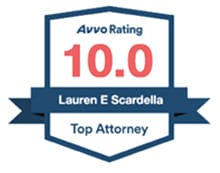New Jersey Fentanyl Charges Attorney
Fentanyl Drug Crime Lawyers in Hamilton Advocates for the Rights of Clients Facing Drug Charges in Mercer County, Monmouth County, Middlesex County, and Throughout NJ
Fentanyl is a powerful pain reliever, often coming in patch form. However, in recent years the drug has become a popular option for abuse, with many adding fentanyl into heroin and other opiate drugs to create a much stronger “high” that also comes with a more significant risk of overdose. As a result, law enforcement and prosecutors treat illegal possession of fentanyl as a serious crime. If you’ve been arrested and charged with illegal fentanyl possession or distribution, turn to a New Jersey fentanyl charges attorney from The Scardella Law Firm LLC for a seasoned legal defense. We fight to protect the rights of individuals facing criminal prosecution. Having worked on both the prosecution and defense sides of criminal cases, we have the experience and insight to develop unique legal strategies tailored to your needs and goals.
After you’ve been charged with fentanyl possession, get the legal help you need to protect your rights and future. Contact The Scardella Law Firm LLC for a free initial case review to talk with our fentanyl drug crime lawyers in Hamilton, NJ, about your legal options. Our firm will fight to protect your interests and pursue a favorable resolution to your case.
New Jersey Laws on Fentanyl Possession
New Jersey law makes it illegal to possess fentanyl without a valid prescription from a doctor or other licensed prescribing authority. It is also illegal to possess fentanyl analogs or substances derived from fentanyl.
New Jersey criminal laws also prohibit the manufacture, transportation, distribution, or possession of fentanyl with intent to distribute without an appropriate license to manufacture, transport, or distribute these drugs.
Penalties for a Fentanyl Conviction in New Jersey
Penalties for possessing fentanyl without a valid prescription or license will vary based on the quantity of fentanyl involved in an offense:
- Four or fewer dosage units – Up to six months in jail and a potential fine of up to $1,000, plus possible revocation of driving privileges for up to two years
- Five or more dosage units – Up to 18 months in prison
Penalties for distributing fentanyl or possessing fentanyl with intent to distribute include:
- Four or fewer dosage units – Up to 18 months in prison
- Five to 99 dosage units – Up to five years in prison and a potential fine of up to $200,000
- 100 or more dosage units – Up to 10 years in prison and a potential fine of up to $300,000
Possessing fentanyl analogs not designed for prescription use carries a penalty of up to five years and a potential fine of up to $35,000. Penalties for manufacturing, transporting, distributing, or possessing analog substances with intent to distribute will depend on the quantity of drugs involved:
- Less than one ounce (including adulterants or dilutants) – Up to five years in prison and a potential fine of up to $75,000
- One ounce or more – Up to 10 years in prison and a potential fine of up to $150,000
A court may also impose a mandatory period of parole ineligibility for distributing or possessing fentanyl or one of its analogs on or within 1,000 feet of a school bus or school property.
Let Our Fentanyl Drug Crime Lawyers in Hamilton, NJ, Pursue Possible Defense Strategies in Your Case
When you’ve been charged with possession of fentanyl, you may have viable defenses to fight your charges to secure a reduction or dismissal of your charges or an acquittal at trial. Examples of ways we might fight back against possession charges include:
- Proving you had a valid prescription for fentanyl
- Challenging the legality of a law enforcement stop
- Challenging the legality of a warrantless search or contesting whether a search warrant was supported by adequate probable cause
- Moving to exclude the state’s evidence as unlawfully obtained or due to questions about the reliability of lab testing or breaks in the chain of custody
What Can a New Jersey Fentanyl Charges Attorney Do to Help You Face Prosecution for Drug Possession?
If your freedom and future are on the line due to criminal charges for fentanyl possession or distribution, let the fentanyl drug crime lawyers in Hamilton, NJ, of The Scardella Law Firm LLC assist you through each stage of your case, including:
- Independently investigating the facts and circumstances underlying your charges
- Evaluating your legal options based on potential defenses and possible outcomes in your case
- Challenging the admissibility of the state’s evidence and the sufficiency of the case against you by filing motions to exclude evidence or dismiss your charges
- Pursuing alternative resolutions of your case, such as applying for admission to recovery court if appropriate
- Advocating in your defense at trial if you choose to fight your charges
Contact Our Firm to Discuss Your Legal Options with Our Fentanyl Drug Crime Lawyers in Hamilton, NJ
Don’t delay speaking with a New Jersey fentanyl charges attorney after you have been arrested and charged with possession. Contact The Scardella Law Firm LLC today for a free, confidential consultation to learn more about how we can assist you through the criminal justice system and advocate for a positive out you.
Frequently Asked Questions About Fentanyl Charges in New Jersey
Several factors will determine whether prosecutors charge a fentanyl drug crime as simple possession or possession with intent to distribute. The quantity of drugs often influences the prosecution’s charging decision since someone possessing a substantial quantity of drugs is assumed to be transporting or selling those drugs. Other circumstances may also lead to a possession with intent to distribute charge, such as drugs being individually packaged for sale or being found near other evidence of distribution like packaging materials, scales, or large quantities of cash.
In New Jersey and federal law, fentanyl is classified as a Schedule II drug. Schedule II drugs include drugs that have some accepted medical use but pose a substantial risk of abuse or addiction. However, federal law also classifies fentanyl-related drugs or drugs derived from fentanyl as Schedule I drugs, which means these related substances have no accepted medical uses and pose the highest risk of abuse and addiction. Possession of Schedule I drugs typically carries the harshest punishments following conviction.






